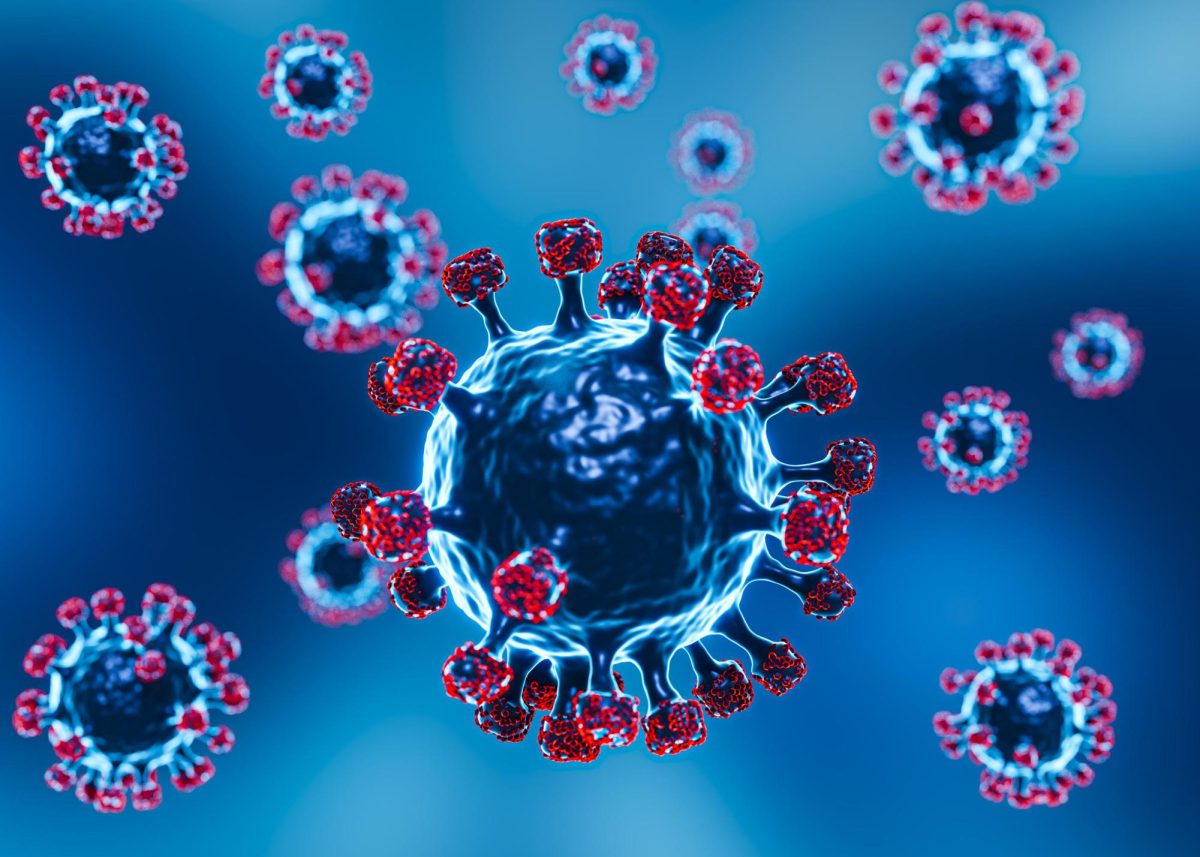
Image by Freepik
Norovirus, a highly contagious virus that produces acute gastroenteritis, has witnessed a peak in cases in Michigan in 2024 and 2025.
Experiencing fever, headaches, body aches, nausea, vomiting or stomach pain lately? These symptoms are most commonly associated with a virus called norovirus. Norovirus can infect people of all ages and health conditions, so it is important to know how to stay safe from the sickness. According to The Detroit Free Press, in just Michigan alone, 1,394 cases of norovirus were recorded in 2024.
Based on the symptoms listed, many people confuse norovirus with the common “stomach flu.” However, this is untrue. Norovirus stems from a completely different virus than the stomach flu. The flu comes from the influenza virus, while norovirus causes acute gastroenteritis (inflammation of the stomach/intestines).
Norovirus can be spread in many different ways. Something as simple as touching a contaminated surface, sharing food or liquids or even just direct contact with another person can get people sick. According to the Centers for Disease Control and Prevention, it only takes 24 to 48 hours after an interaction to contract the virus from another person.
“Most people have symptoms for one to two days, [but they] can linger for three to four days, and some people can have some lingering effects beyond that,” said Mrs. Godfrey, Brighton High School’s school nurse.
This is why it is extremely important for people to stay home if they are feeling sick and have norovirus symptoms. Norovirus also causes dehydration, so constant fluids are a big step on the road to recovery.
“Typically with rest, fluids [and a] bland diet, they [sick people] start to feel more themselves quickly,” Godfrey said.
While Norovirus can infect anyone, the elderly, young children and people with preexisting health conditions experience worse symptoms and a longer recovery time than the average person.
Norovirus also has many different strains, so it is possible to get it multiple times because people don’t have the particular antibodies to fight each variant. Unfortunately, people are never truly “protected” from this virus due to its multiple different strands as well as there not being a medicine to cure the virus. However, there are ways to help minimize the possibility of contracting the virus.
People can reduce their chances of getting norovirus and other similar illnesses by washing their hands frequently, refraining from sharing food or drinks, and not touching their faces often.
“Hand sanitizers do not kill norovirus, and a lot of regular home cleaning products or disinfectant wipes do not kill norovirus. You have to use a certain bleach concentrate to kill norovirus or a specialized cleaner,” Godfrey said.
Animals can also get norovirus, so it is important to cook food properly and wash fruits and vegetables to prevent eating contaminated food that can spread the sickness.
Image by Freepik